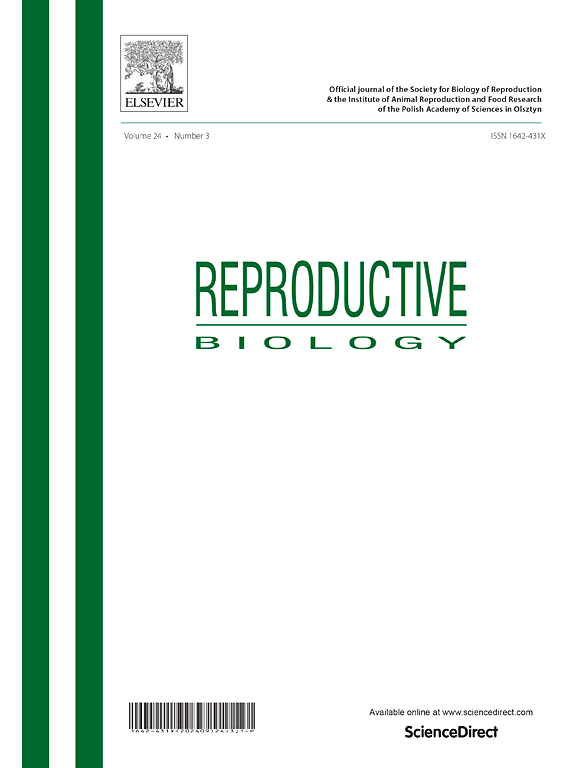Recurrent pregnancy loss: Crosstalk between immune cells, decidual cells, and cellular autophagy
IF 2.5
3区 生物学
Q3 REPRODUCTIVE BIOLOGY
引用次数: 0
Abstract
Recurrent pregnancy loss (RPL), affecting ∼5 % of couples, remains idiopathic in up to 50 % of cases. This review synthesizes the multifactorial pathogenesis of RPL, emphasizing dysregulated molecular pathways, genetic polymorphisms such as NOS2 rs2779249, and environmental triggers such as Toxoplasma gondii infection and pesticide exposure. Immune dysfunction is central, characterized by altered Treg subsets such as reduced CD4⁺ and increased CD8⁺ Tregs, impaired checkpoint expression such as PD-1/PD-L1 and Tim-3, aberrant cytokine profiles such as elevated IL-7, IL-1β, TNF-α and reduced TGF-β, and decidual NK (dNK) cell dysregulation impacting trophoblast invasion via pathways like IGF-2/PEG10. Non-coding RNAs further contribute by promoting trophoblast apoptosis, suppressing migration/invasion, and driving inflammation through MAPK/JNK/NF-κB signaling. Decidualization defects involve metabolic imbalance, unresolved endoplasmic reticulum stress, microRNA dysregulation, TNFα-induced senescence, and disrupted β-catenin/STAT3 crosstalk. Autophagy exhibits dual role: while protective in decidual stromal cells (DSCs) by supporting Treg expansion and immune tolerance, its dysregulation triggers trophoblast apoptosis via MCL-1 degradation and caspase activation. Environmental toxins exacerbate oxidative stress and apoptosis. Therapeutic prospects include immune checkpoint agonists, lncRNA/miRNA antagonists, autophagy flux modulators, growth factor therapies, and LMWH targeting thrombotic and inflammatory pathways. However, clinical translation faces challenges, including pathway duality, pleiotropic effects, targeted delivery limitations, and limited human trial data. Future research should focus on single-cell resolution studies, personalized approaches, and safer nanocarriers for biologics to bridge mechanistic insights into effective RPL interventions.
复发性妊娠丢失:免疫细胞、蜕细胞和细胞自噬之间的串扰。
复发性妊娠丢失(RPL)影响约5 %的夫妇,在高达50% %的病例中仍然是特发性的。本文综述了RPL的多因素发病机制,重点介绍了分子通路失调、基因多态性如NOS2 rs2779249以及弓形虫感染和农药暴露等环境触发因素。免疫功能障碍是核心,其特征是Treg亚群改变,如CD4 +减少和CD8 + Tregs增加,检查点表达受损,如PD-1/PD-L1和Tim-3,细胞因子异常,如IL-7、IL-1β、TNF-α和TGF-β升高,以及通过IGF-2/PEG10等途径影响滋养细胞侵袭的NK细胞失调。非编码rna进一步通过MAPK/JNK/NF-κB信号传导促进滋养细胞凋亡,抑制迁移/侵袭,驱动炎症。去个性化缺陷包括代谢失衡、内质网应激未解决、microRNA失调、tnf α诱导的衰老和β-catenin/STAT3串扰中断。自噬具有双重作用:一方面通过支持Treg扩增和免疫耐受对蜕膜间质细胞(DSCs)具有保护作用,另一方面其失调通过MCL-1降解和caspase激活触发滋养层细胞凋亡。环境毒素加剧氧化应激和细胞凋亡。治疗前景包括免疫检查点激动剂、lncRNA/miRNA拮抗剂、自噬通量调节剂、生长因子疗法和靶向血栓和炎症途径的低分子肝素。然而,临床翻译面临挑战,包括途径双重性、多效性、靶向递送限制和有限的人体试验数据。未来的研究应该集中在单细胞分辨率研究、个性化方法和更安全的生物制剂纳米载体上,以建立有效的RPL干预机制的桥梁。
本文章由计算机程序翻译,如有差异,请以英文原文为准。
求助全文
约1分钟内获得全文
求助全文
来源期刊

Reproductive biology
生物-生殖生物学
CiteScore
3.90
自引率
0.00%
发文量
95
审稿时长
29 days
期刊介绍:
An official journal of the Society for Biology of Reproduction and the Institute of Animal Reproduction and Food Research of Polish Academy of Sciences in Olsztyn, Poland.
Reproductive Biology is an international, peer-reviewed journal covering all aspects of reproduction in vertebrates. The journal invites original research papers, short communications, review articles and commentaries dealing with reproductive physiology, endocrinology, immunology, molecular and cellular biology, receptor studies, animal breeding as well as andrology, embryology, infertility, assisted reproduction and contraception. Papers from both basic and clinical research will be considered.
 求助内容:
求助内容: 应助结果提醒方式:
应助结果提醒方式:


